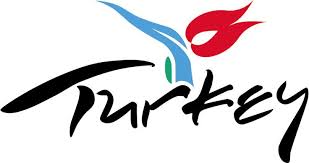The next emerging market that could fall into a crisis is Turkey.
There has been a drop in the country’s currency lira by 2 per cent since the decision of the central bank of the country to keep its key interest rate unchanged at 17.75 per cent which shocked investors. About 27 per cent valuation has been lost by the currency so far this year.
The inflation rate in the country reached 15 per cent in June and investors had bene expecting that the bank would lower rates to fight that high inflation rate. According to many observers, this decision of the bank reflects the growing influence of President Recep Tayyip Erdogan – who is fond of lower interest rates, on the decision of the central bank.
For a central bank, the decision was "incomprehensible" which clearly says that it "cares about inflation", said Tim Ash, an emerging market economist at BlueBay Asset Management.
There is pressure on emerging markets throughout the world, however, analysts have issued warnings against turkey specifically because the country is particularly vulnerable and could be moving to wards a currency crisis which might need a bailout or it would reduce the amount of money moving out of the country.
Threats of imposition of large sanctions against Turkey was made through a tweet by United States President Donald Trump against the imprisonment of an American pastor there which could complicate the current situation for the country if the sanctions were actually imposed.
The rising bond yields in the United States and a stronger US dollar in recent months has been attracting a host number of investors towards that market. This shift has dented the strength of many emerging markets. For example, a request for as $50 billion aid from the International Monetary Fund had to be recently requested by Argentina.
Now investors point at Turkey as another major risk.
There was a growth of 7.4 per cent in the Turkish economy in the second quarter compared to the same period last year. But a spate of construction projects financed primarily by foreign investors have been the driver for the economy in recent years.
There is worry among investors about the capacity of the country to attract investors when the going goes tough in order to paying off its debts.
Another source of uncertainty is Erdogan, who was re-elected in June. He has made one of his relatives as the finance minister and had given himself greater powers with respect to the economy.
There is need for the Turkish government to keep the spending under control, said Mujtaba Rahman, managing editor for Europe at the political risk consultancy Eurasia Group. He said that "the risks of a crisis — and ultimately, an IMF program — will certainly be on the rise" if a credible message is not delivered by the finance minister.
The central bank needs to take action ro get the situation quickly under its control, Ash said.
"It is possible to imagine a scenario where the IMF get involved," Ash said. "But we may be some way from this yet ... the Turks still have the policy tools to steady the ship themselves, should they choose to use them."
(Source:www.money.cnn.com)
There has been a drop in the country’s currency lira by 2 per cent since the decision of the central bank of the country to keep its key interest rate unchanged at 17.75 per cent which shocked investors. About 27 per cent valuation has been lost by the currency so far this year.
The inflation rate in the country reached 15 per cent in June and investors had bene expecting that the bank would lower rates to fight that high inflation rate. According to many observers, this decision of the bank reflects the growing influence of President Recep Tayyip Erdogan – who is fond of lower interest rates, on the decision of the central bank.
For a central bank, the decision was "incomprehensible" which clearly says that it "cares about inflation", said Tim Ash, an emerging market economist at BlueBay Asset Management.
There is pressure on emerging markets throughout the world, however, analysts have issued warnings against turkey specifically because the country is particularly vulnerable and could be moving to wards a currency crisis which might need a bailout or it would reduce the amount of money moving out of the country.
Threats of imposition of large sanctions against Turkey was made through a tweet by United States President Donald Trump against the imprisonment of an American pastor there which could complicate the current situation for the country if the sanctions were actually imposed.
The rising bond yields in the United States and a stronger US dollar in recent months has been attracting a host number of investors towards that market. This shift has dented the strength of many emerging markets. For example, a request for as $50 billion aid from the International Monetary Fund had to be recently requested by Argentina.
Now investors point at Turkey as another major risk.
There was a growth of 7.4 per cent in the Turkish economy in the second quarter compared to the same period last year. But a spate of construction projects financed primarily by foreign investors have been the driver for the economy in recent years.
There is worry among investors about the capacity of the country to attract investors when the going goes tough in order to paying off its debts.
Another source of uncertainty is Erdogan, who was re-elected in June. He has made one of his relatives as the finance minister and had given himself greater powers with respect to the economy.
There is need for the Turkish government to keep the spending under control, said Mujtaba Rahman, managing editor for Europe at the political risk consultancy Eurasia Group. He said that "the risks of a crisis — and ultimately, an IMF program — will certainly be on the rise" if a credible message is not delivered by the finance minister.
The central bank needs to take action ro get the situation quickly under its control, Ash said.
"It is possible to imagine a scenario where the IMF get involved," Ash said. "But we may be some way from this yet ... the Turks still have the policy tools to steady the ship themselves, should they choose to use them."
(Source:www.money.cnn.com)






